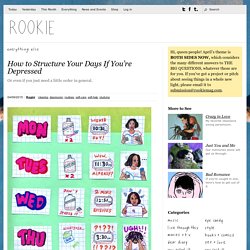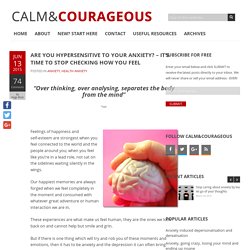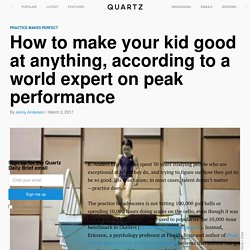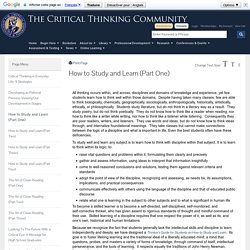

Uk.businessinsider. Flickr/Paul Israel Big or small, decisions aren't as easy as they may seem.

Psychologists have found decision-making is fraught with hidden influences, tricky nuances, and the ability to make us happy in the short-term but unhappy in the long-term. Some of my greatest insights into this aspect of human behavior have come from TED talks, which break down research findings into their most digestible form. Here are the talks that have changed how I make decisions. "How to make hard choices" Philosopher Ruth Chang's 2013 talk explains that people often struggle to choose between two equally good options that are "on a par. " People tend to view hard choices as burdens, but Chang would prefer we see them as blessings that grant us agency.
The takeaway: Whenever I face a hard choice, I celebrate it as a way to cement an aspect of my identity. "Grit: The power of passion and perseverance" "The paradox of choice" It's actually possible to get worn out from making so many tiny choices throughout the day. Free Yourself from What You “Should” Be Doing. Many people are hesitant to step out of their regular roles and routines.

The idea of putting yourself in a position to potentially fail can be frightening or stressful. But sometimes what’s keeping you in one spot may not be your own self-interest. In fact, other people’s wishes and the feeling that you “should” stay put may be tamping down your own preferences. How to Structure Your Days If You're Depressed. Illustration by Lucy.

My daily structure—waking up early, daily showers, attending school—came undone with my mother’s death and my subsequent free-fall into depression. I lived in several apartments, all of which devolved into health hazards at alarming speed. My ex named my toenails “dragon claws,” and my fiancé christened them talons the first time we met. I went for a good seven years without brushing my teeth. (That’s one of the things we don’t speak of.) Quora. Lessons to Learn from Gene Kranz.
The ultimate morning routine - plus a bonus breakfast super smoothie recipe - Calm and Courageous. The ultimate morning routine – plus a bonus breakfast super smoothie recipe “Morning is an important time of day, because how you spend your morning can often tell you what kind of day you are going to have” Lemony Snicket The human brain likes routines.

Do any routine (as long as it’s fairly simple to do) for long enough and it becomes habit. Habits are what helps reduce stress and make life a little easier as you don’t have to constantly consciously think about what you are doing. Now of course not all habits are good, the anxiety habit is certainly one that needs to be broken and avoided. Today I am going to be providing the best morning routine I know for starting the day off right and helping reduce your anxiety. It combines a lot of points I wrote about in my article: The 10 best ways to start your day right and help prevent anxiety. Are you hypersensitive to your anxiety? - it's time to stop checking how you feel - Calm and Courageous. Are you hypersensitive to your anxiety?

– it’s time to stop checking how you feel “Over thinking, over analysing, separates the body from the mind” Tool Feelings of happiness and self-esteem are strongest when you feel connected to the world and the people around you; when you feel like you’re in a lead role, not sat on the sidelines waiting silently in the wings. Our happiest memories are always forged when we feel completely in the moment and consumed with whatever great adventure or human interaction we are in.
How to make your kid good at anything, according to Anders Ericsson, an expert on peak performance and originator of the 10,000-hour rule — Quartz. K.

Anders Ericsson has spent 30 years studying people who are exceptional at what they do, and trying to figure out how they got to be so good. His conclusion: in most cases, talent doesn’t matter—practice does. The practice he advocates is not hitting 100,000 golf balls or spending 10,000 hours doing scales on the cello, even though it was his work that Malcolm Gladwell used to popularize the 10,000-hour benchmark in Outliers (incorrectly, Ericsson argues). Instead, Ericsson, a psychology professor at Florida State and author of Peak: Secrets from the New Science of Expertise, believes that anyone can get good at anything if they engage in “deliberate practice,” a very specific kind of training that, among other things, is really unpleasant. Deliberate practice involves the pursuit of personal improvement via well-defined, specific goals and targeted areas of expertise. Learning. How to Study and Learn (Part One) All thinking occurs within, and across, disciplines and domains of knowledge and experience, yet few students learn how to think well within those domains.

Despite having taken many classes, few are able to think biologically, chemically, geographically, sociologically, anthropologically, historically, artistically, ethically, or philosophically. Students study literature, but do not think in a literary way as a result.